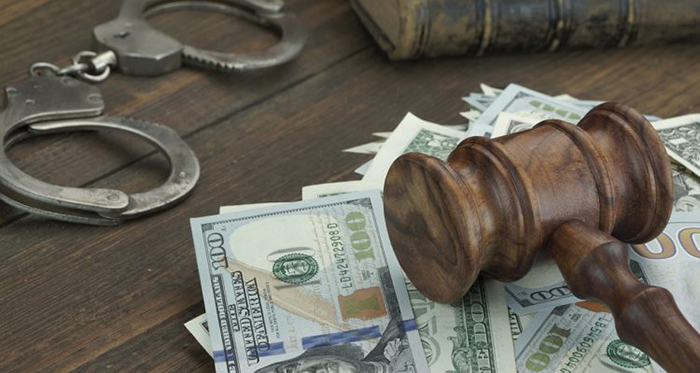The legal system guarantees the presumption of innocence. The bail system in the US reinforces that notion by ensuring that in virtually every case a person arrested on suspicion of a crime has the opportunity enjoy freedom while awaiting their day in court. Recently though, bail bonding has come under fire by pontificators claiming that the system actually punishes the poor, when in fact it does nothing of the kind.

Bail: The Great Equalizer
The presumption of innocence is one of the pillars of US law. Although it is not stated anywhere in the Constitution this right has come to us from English common law and is widely regarded to be one of the “other” rights mentioned in the 9th amendment. In addition the 6th Amendment guarantees every defendant the right to be represented by counsel. This has been interpreted to mean that if you can’t afford a lawyer one will be provided for you free of charge.
The final pillar supporting the concept of “innocent until proven guilty” is the bail system. The 8th Amendment guarantees each defendant the right to bail that is not “excessive”. Bail ensures that innocent people are not forced to molder in jail while awaiting their day in court. Bail is also used as a kind of insurance policy against defendants fleeing after being bailed out. Because if they do they, or their indemnitor, lose any money or assets the put up to secure bail.
The bail system has long been viewed as the great equalizer in the criminal justice system. It has worked fine for centuries, allowing common folks in Adams County, Broomfield County, Weld County and Denver the same right to freedom while awaiting trial historically afforded to the wealthy. But in recent years bail has come under attack.
Getting it Backwards
Opponents of the bail system in the US point to statistics to “prove” their point that the bail system is no longer working. They point to the large number of people languishing in jail allegedly because they can’t afford bail. As well as the large number choosing to plead guilty to crimes in order to hurry their release again, allegedly, because they can’t afford bail. This is a clever and seemingly convincing argument except for one thing: it’s backwards.
It’s true that the prison population in the US has skyrocketed in the past 20 years. But that doesn’t have as much to do with people being unable to afford bail as it does with the blizzard of so-called “3-strikes” laws that went into effect across the country. These laws, an entirely new creation of the justice system, have had the effect of confining countless non-violent offenders to mandatory prison time for crimes as mundane and harmless as being caught with a marijuana cigarette in their possession.
In the vast majority of such cases the person would have been able to walk free after paying minimal bail 30 years ago. Now, however, they are being sentenced to years behind bars. In California alone there are some 45,000 individuals serving prison time under these laws. This explosion in the prison population has nothing to do with the bail system. Pretending that it does is a form of backwards thinking practiced by those who don’t want to acknowledge uncomfortable realities.
In addition, bail rates haven’t changed much in decades for most offenses. What has changed is people’s ability to pay. And again, that is not the fault of the bail bondsman. That problem has its root causes buried deeply in the corridors of power.
Don’t Blame the Bondsman for Political Failures
The fact that so many people in the US are living paycheck to paycheck and may no longer be able to make even a modest bail payment is not the fault of the bail industry. It is the fault of politicians who have made it easy for companies to relocate formerly good-paying manufacturing jobs to other countries without suffering any consequences for doing so.
It is the fault of the higher education system that has put itself financially out of reach of the common man. Thereby limiting the ability of millions of people to get the education and training they need to secure the kind of good paying job their parents took for granted.
It is the fault of a banking system that nearly brought the entire global economy to its knees, destroying the creditworthiness of millions and causing uncountable job losses that have only recently begun to return. Where 20 years ago someone may have been able to obtain a cash advance on their credit card to pay bail or the bail agent’s fee, those whose credit was ruined by economic forces beyond their control can no longer do so.
The bottom line is that if you are looking for the real reason so many people cannot afford even modest bail payments it has little, if anything, to do with the concept of bail or the local bail bonds company and everything to do with the societal landscape that has systematically taken money from the pockets of the poor and middle class and shifted it to the pockets of the already well-to-do.
As such any true reform of the legal system, including the bail system, must take into account the phenomenon of income redistribution from the poor and middle class to the wealthy, as well as punitive and unreasonable sentencing laws that have resulted in so many non-violent offenders being locked away with no chance of bail.